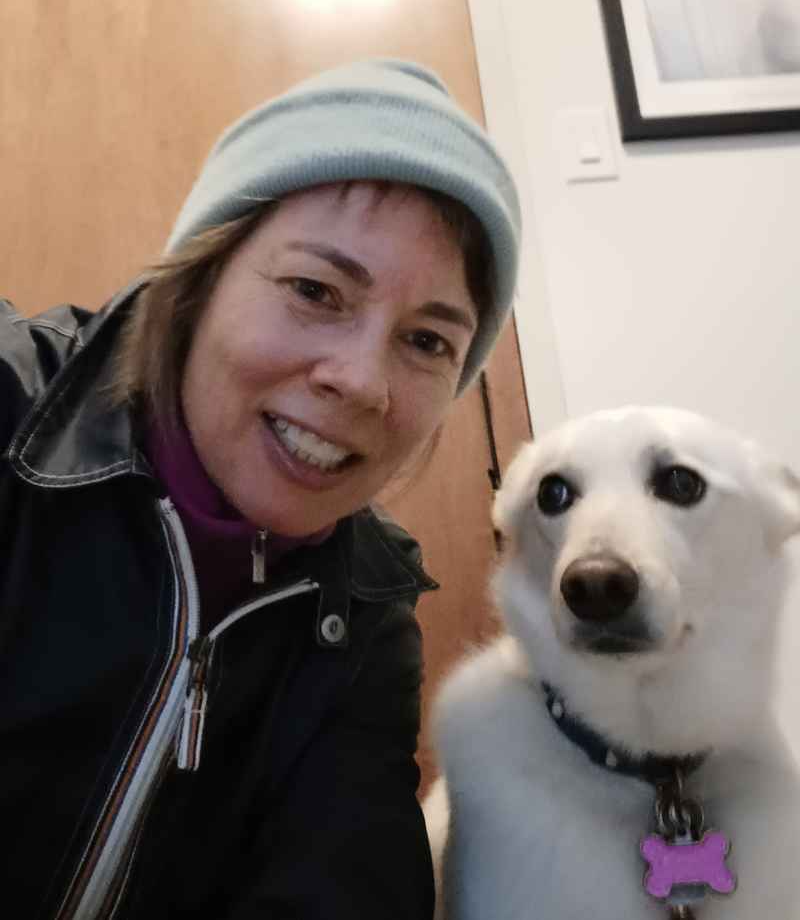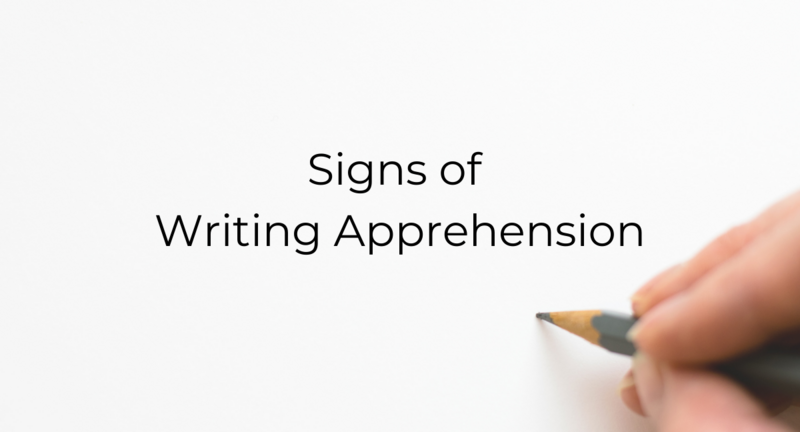
As a child, I was terrified of dogs. For me, encountering a beagle on a leash was like meeting a wolf in the wild.
Big or small, curly-haired or sleek, unicoloured or brindled, dogs of any kind petrified me. Just meeting a dog on the street could take my breath away and give me nightmares for weeks.
I think this fear had something to do with a visit to a relative’s farm when I was nine or 10 years old. I entered the horse barn already nervous around dogs, and I came out feeling lucky to be alive.
The farmer kept Dobermans as watchdogs, and one of the creatures had managed to get itself kicked in the head by a horse. The accident left it permanently scarred, with a misshapen head, and a bulging red eye. The trauma also changed the dog’s personality—he became so aggressive that he had to be locked up in a stall, where he thrashed and growled at any stranger who happened to stop by (such as an easily-frightened young girl).
To my impressionable mind, this deformed Doberman became the archetype of all dogs. After that day, I would sooner volunteer to swim with sharks than to pat the neighbour’s puppy.
Flash forward a few decades, and here’s a picture of me with my BFF Cleo, after our morning jog.

Cleo isn’t the first canine I’ve gotten friendly with as an adult, but she is the first one who’s stayed with me past puppyhood. (A young Lab died suddenly, and a young Duck Toller had to be re-homed during a difficult divorce.)
With her irresistible charm, Cleo has conquered any vestigial fear left from my childhood phobia of her kind. Looking back on the four years since Cleo joined the family, I can see that the process of overcoming my fear of dogs has some lessons for anyone trying to conquer anxiety about writing.
Such anxiety—more accurately called writing apprehension—is more common than you might think. Some of its symptoms may sound familiar to you.

- Avoiding situations, including work roles, that call for a lot of writing.
- Feeling unable to start a writing task.
- Getting “blocked” partway through a writing task.
- Worrying about how your writing will be judged.
- Holding a generally negative attitude about writing.
If any of these “tells” speak to you, then take heart: if I can conquer my paralyzing fear of dogs, you can get over your fear of the blank page.
Here are seven lessons from life with Cleo to help you on your way.
Lesson 1: Start small
Cleo joined us when she was just 10 weeks old. At that stage, she was such a tiny ball of white fluff that not even I could be afraid.
As much as I love the idea of adopting a rescue dog, given my lifelong phobia, I just couldn’t start with an adult animal likely to have behaviour issues. That situation would have been overwhelming for me.
An eight-pound puppy was intentionally underwhelming, and you can use a similar underwhelm strategy to conquer anxiety about writing.
One of the best ways to overcome writing apprehension is to journal for just 10 minutes a day. Producing writing for your eyes only will condition you to view the blank page as a safe space, not a space where judgement awaits.
Journal consistently, and after just a couple of weeks, you’ll start to feel more relaxed as you approach business writing tasks.
Lesson 2: Watch others
The journey to Cleo’s adoption was a long one. My daughter lobbied for a canine friend for years, and during that time we paid close attention to dogs and owners we met. We noticed how different breeds behaved, and, more importantly, how different owners controlled (or didn’t) their critters.
Through these observations, I began to realize that the Doberman who’d haunted my dreams for so long was the exception, not the rule. I began to understand that dogs could learn respect and self-control, and that recognition gave me confidence.
While writing apprehension is common, not everyone is plagued by it. Who in your workplace or your network is a prolific writer? Who puts their hand up when a writing task needs to get done?
Seek out confident writers and watch how they work. Ask them about their writing process, and you might be surprised to discover small tweaks you can apply to your own.
Lesson 3: Enlist support
Before we adopted Cleo, my daughter spent hours watching online dog training videos. I think her record was more than 50 Zak George videos in one day.
My daughter and I also registered Cleo for puppy classes as soon as we could. Tips from our trainer, Jennifer, nipped a lot of small problems (such as nipping during teething) in the bud before they could become big problems.
Just as you can “YouTube” drywalling a basement or decorating a cake, you can find videos online to help with writing challenges. (Check out Clarity Studio’s channel for starters.)
You might also check out blogs written by writers for other writers because these tend to focus on issues related to creativity and productivity. While you may not be aiming to produce a novel, improving your ability to generate ideas and “get the words out” will instantly reduce anxiety about writing.
Lesson 4: Be kind
As I’ve mentioned, Cleo is not the first dog I’ve owned as an adult. But she is the only dog who has slept on my bed—and pretty well anywhere else she pleases.
The other dogs who passed briefly through my life were subjected to a style of training that never felt right to me. I was told that I had to dominate or be dominated. The pup was never to pass through a door before me, sit on furniture with me, or—God forbid—jump up on my bed.
This dictator approach made me uncomfortable and put distance between the dog and me. With Cleo, therefore, my daughter and I decided to try a different tactic. We would bond with her first, and love her into obedience.
And this gentler approach has worked. Cleo lives to please us, and unless there’s a squirrel in sight, we usually have her rapt attention. No harsh discipline required.
With kindness as the method, dog training felt natural, and it became a fun activity my daughter and I enjoyed together. So how can you bring more kindness into your writing process?
As a first step, you might try talking to yourself kindly about writing. Here are some things I routinely tell myself when I’m approaching a writing task:
- Hey, it’s ok to just sit and stare out the window, or cuddle with Cleo, before you get started.
- Take a walk to clear your head—thinking on your feet counts!
- This is looking pretty good for a first draft!
- Writing is hard work, so go easy on yourself today.
- Just show up and see what happens.
Many writing problems stem from negative self-talk about writing, so you may find that some intentionally kind self-talk solves many of your issues.

Lesson 5: Take the long view
The vet told us it would take about two years for Cleo to grow up, but IMHO she really didn’t become an adult till she was three. Looking back from today’s perspective, those three years seem to have flown by. But there were plenty of moments during the first year when we wondered whether Cleo would ever make it to maturity.
At one particularly low point (which I’m not proud of), I threatened to sell the puppy on Kijiji because her boundless energy was pushing my limits. Thankfully, my daughter was able to keep the long view.
Together, we kept doing the training exercises, and day by day, little by little, our white ball of frenzy started to transform into a respectable canine citizen.
Taking the long view helps with any sizeable writing project, such as a report, a newsletter, or a grant application. Remember that no piece of writing happens all at once. It evolves one sentence or one word at a time, usually through a series of drafts.
Try breaking a long writing project into interim goals. How many paragraphs will you draft today? Or how many topics will you cover? How far will your editing take you?
Working with immediate, achievable writing goals gives you the confidence and persistence you need to make it to that triumphant moment when you can declare the job “Done!”
Lesson 6: Set yourself up for success
“Dog training” should really be called “owner training.” Through our puppy classes, my daughter and I learned that the onus was on us to give Cleo the consistent signals and praise she needed to succeed. If a training exercise went wrong, we—not the puppy—were usually to blame.
Maybe we didn’t press the clicker quickly enough to acknowledge correct behaviour. Or maybe we used the wrong word to release Cleo from a position. Or maybe we mixed up a click-treat-command sequence.
My daughter, who’s an animal whisperer and now a certified dog groomer, caught on to the rules more quickly than I did. Frequently, she’d remind me of the trainer’s mantra: “Set Cleo up for success, Mom!”
Setting Cleo up for success meant putting all the conditions in place to make it easy for her to obey a command. How do you set yourself up for success as a writer?
Here are some of my practices, which you might be able to adapt to your temperament and circumstances:
- Write in a quiet room.
- Write in the morning, the time when I’m most energetic and creative.
- Clear any pressing tasks out of the way before starting to write—or budget time in the calendar to do them later on.
- Write for at least 90 minutes at a stretch (so I can feel I’ve achieved something).
- When it’s hard to start, play Roseanne Cash’s album The Wheel. (Play the song “The Wheel” over and over as many times as necessary.)
Lesson 7: Keep a sense of humor
Print books are a luxury I seldom allow myself, for both economical and environmental reasons. But during Cleo’s puppyhood, I decided I’d buy a hard copy of one of my favourite novels, Howard’s End by E.M. Forster.
At the time, I was planning to create a presentation based on a key phrase from the novel, “Only connect!” So I spent a day curled up with the book, underlining passages in pencil and writing notes in the margins. Then I made the mistake of leaving it on the ottoman overnight.
When I got up in the morning, a huge chunk was missing from the book’s corner. So much for finishing the final chapters! And goodbye to all my annotations.
What could I do but laugh? Evidently, Cleo and I shared an appetite for Edwardian literature.
And I laughed again when, after a household move, the confused puppy peed my bed—not once but twice. Frustration just didn’t seem a sensible option.
I can say the same about the writing process. Because writing is a complex activity, it provides many opportunities for frustration. On any given day, I could get frustrated about a sticky keyboard, a glitchy computer, a stiff neck and shoulders, a tight deadline, fatigue, eye strain, boredom, lack of ideas, lack of energy, and so on.
Or I can recall one of William Zinsser’s wry comments about the writing process, like this one:
"Hard writing makes easy reading. Easy writing makes hard reading."
Or let Mark Twain remind me of why writing is a craft, not a chore. Here’s one of his many quips that help me keep my balance when I’m struggling:
"The difference between the almost right word and the right word is really a large matter. ‘Tis the difference between the lightning bug and the lightning."
I’m fond of saying that writing well is a matter of skill, not character. No one is born a good or bad writer, and writing poorly is not a moral defect. However, a sense of humor is an invaluable attribute for you to bring to the page.
Recognizing the challenges of writing as universal difficulties helps to put them in perspective. And bring a smile to your face, so you can keep going even when the going gets tough.
I’m grateful to Cleo for the opportunity to finally overcome my fear of dogs. If you’re someone who wrestles with writing apprehension, please know two things: (1) you’re not alone, and (2) with the right strategies and habits in place, you can get past whatever’s holding you back from becoming a productive, proficient writer.
There are plenty more tips where these came from! You’ll find some of them each month in Clarity Studio’s newsletter.


Comments